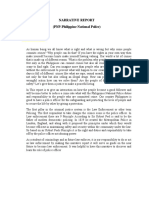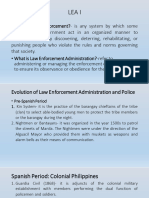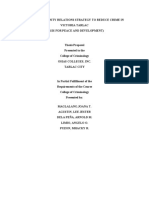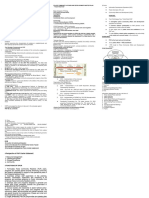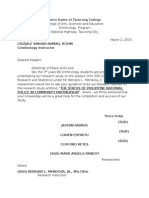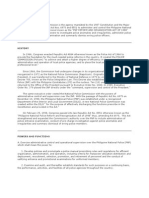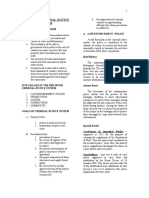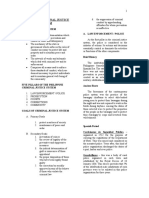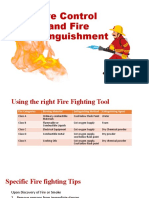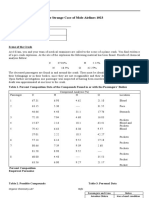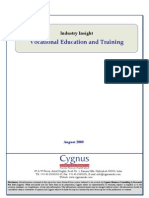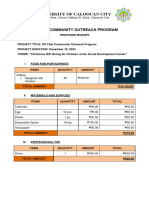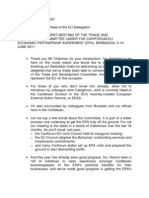0% found this document useful (0 votes)
113 views3 pagesPCR Manual
Community policing revolves around the principle that the police are members of the public who are paid to focus full-time on protecting community welfare and safety. It emphasizes cooperation between police and the communities they serve. In the Philippines specifically, community policing links police closely with the community to foster strong, trusting relationships and allow for fast information sharing. This helps police keep the peace through patrols, organization, and community engagement. Building public approval and acceptance of police is seen as critical to their ability to perform duties effectively. The goal is for police to serve the public in a way that even subjects of policing actions view as acceptable.
Uploaded by
Fitz Kennedy CannogCopyright
© © All Rights Reserved
We take content rights seriously. If you suspect this is your content, claim it here.
Available Formats
Download as DOCX, PDF, TXT or read online on Scribd
0% found this document useful (0 votes)
113 views3 pagesPCR Manual
Community policing revolves around the principle that the police are members of the public who are paid to focus full-time on protecting community welfare and safety. It emphasizes cooperation between police and the communities they serve. In the Philippines specifically, community policing links police closely with the community to foster strong, trusting relationships and allow for fast information sharing. This helps police keep the peace through patrols, organization, and community engagement. Building public approval and acceptance of police is seen as critical to their ability to perform duties effectively. The goal is for police to serve the public in a way that even subjects of policing actions view as acceptable.
Uploaded by
Fitz Kennedy CannogCopyright
© © All Rights Reserved
We take content rights seriously. If you suspect this is your content, claim it here.
Available Formats
Download as DOCX, PDF, TXT or read online on Scribd
/ 3












